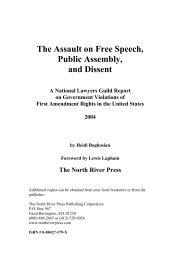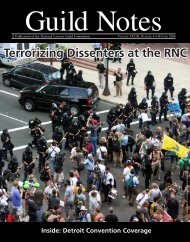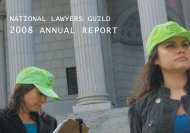Does your library have National Lawyers Guild Review?
Does your library have National Lawyers Guild Review?
Does your library have National Lawyers Guild Review?
You also want an ePaper? Increase the reach of your titles
YUMPU automatically turns print PDFs into web optimized ePapers that Google loves.
118 national lawyers guild reviewjected to the sort of unlawful threats and promises that Bronfenbrenner’sstudy shows are now par for the course. 16 Weiler’s proposal would, bynecessity, take the employer out of the administrative hearings that lead upto the election and, to a great extent, the campaigning in the days before thevote. That would mean that the employer not only does not get to weigh inon the appropriateness of the unit sought by the union or the supervisory ormanagerial or confidential status of any particular employee, but would not<strong>have</strong> the opportunity to intimidate employees with threats of plant closureor timely discharges of union supporters. 17Either of these changes would go a long way toward the goal of allowingemployees to make up their own minds in an atmosphere free from coercion.We <strong>have</strong>, however, been down this road before: the 1977 labor law reformbill originally proposed a fifteen day timetable, which the proponents of thebill then extended to twenty-five, then thirty, and finally thirty-five days tomeet their opponents’ complaint that there was something unfair about notallowing the employer the right to voice its full-throated opposition to theunion by every lawful means available to it. 18 They used the rhetoric of theFirst Amendment and democracy to argue that there was something unfairabout not allowing the employer to use its free speech rights to communicatewith workers—roughly the same arguments that the opponents of EFCA areraising now when arguing that there is something inherently suspect abouta card check rather than a secret ballot election.The opponents of quick elections start from a false premise: the ideathat the employer should <strong>have</strong> an equal say in the Board’s definition of theunit that the union proposes to represent. There is no principled reason, totake a familiar example, why an employer’s preference for a multi-locationbargaining unit should make a difference if the union is seeking a singlelocationunit; the Board should accept the union’s proposed unit, so long asit does not offend any statutory restrictions, 19 and leave any individualizedissues, such as the supervisory status of particular employees, to be resolvedthrough the challenged ballot procedure.Employers couple their argument that the employer must be given a voicein the definition of the bargaining unit with an equally dubious proposition:that the First Amendment not only bars the NLRB from preventing themfrom speaking to their employees about the merits of unionization, 20 but thatit requires the NLRB to make sure that they <strong>have</strong> enough time to drive thosepoints home. Employers are not, on the other hand, asked to make the samesorts of concessions to unions: on the contrary, unions are not allowed ontothe employer’s property to campaign, 21 much less allowed the right to attendthe employer’s captive audience meetings with employees.



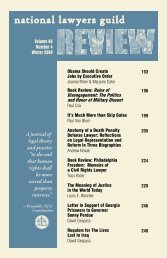
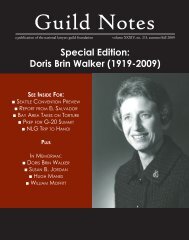
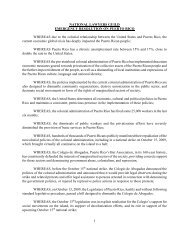
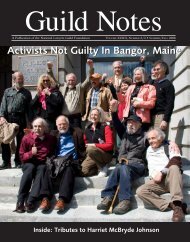
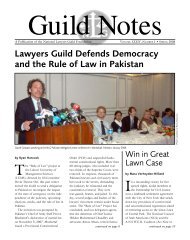
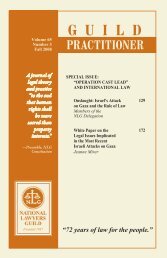

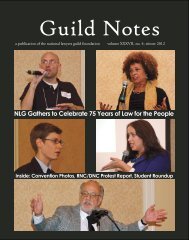
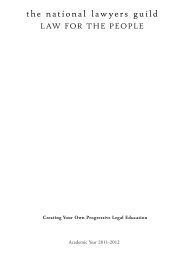
![NLGRev 68-2[1].indd - National Lawyers Guild](https://img.yumpu.com/30820772/1/167x260/nlgrev-68-21indd-national-lawyers-guild.jpg?quality=85)
